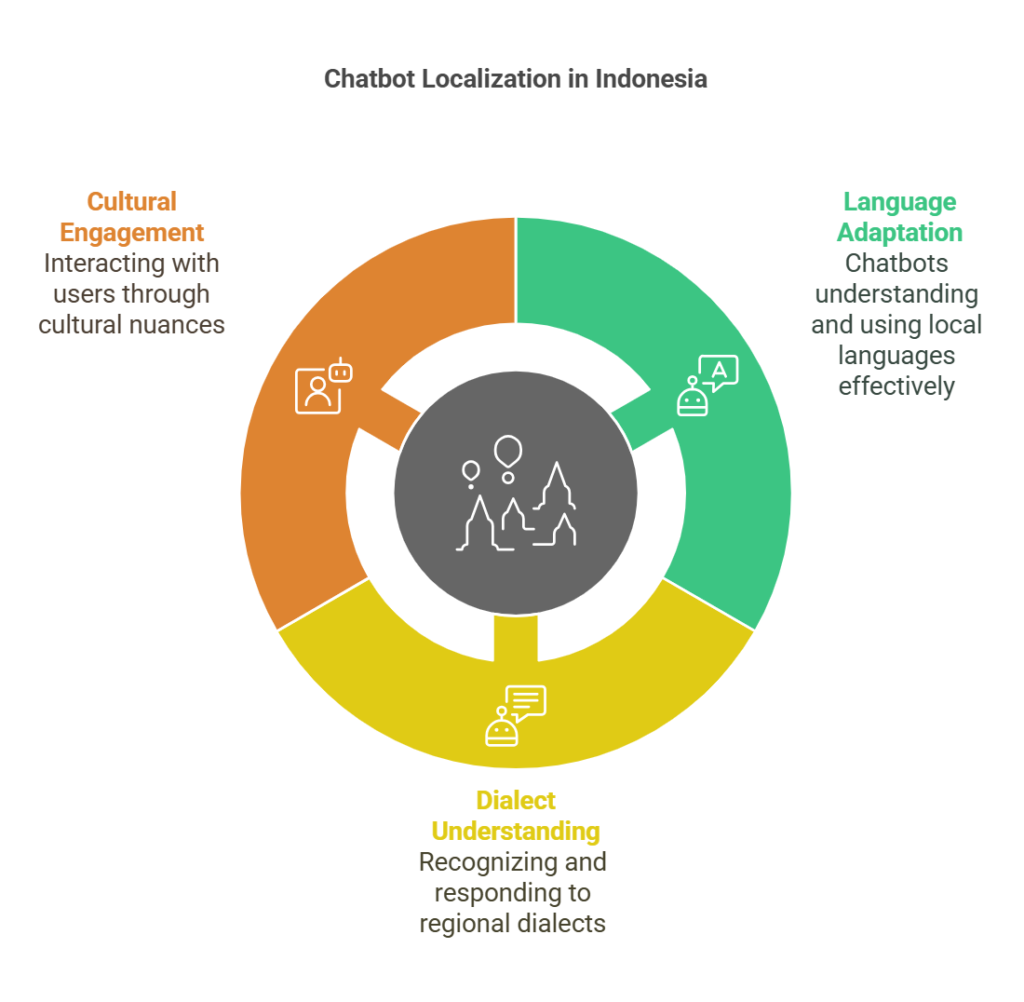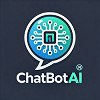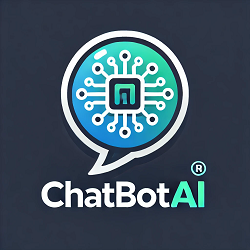By Dr. Dwi Suryanto
I. Introduction
In recent years, Chatbot AI has emerged as a game-changer in how businesses interact with their customers. By automating communication, chatbots streamline operations, reduce costs, and provide instant, personalized responses.
But what makes Chatbot AI particularly relevant in Indonesia?
With its diverse population, widespread use of messaging apps like WhatsApp, and growing digital economy, Indonesia presents a unique opportunity for Chatbot AI to thrive. Businesses—from small startups to large enterprises—are leveraging this technology to improve customer experiences and scale their operations efficiently.
In this guide, we’ll explore how Chatbot AI works, its benefits for Indonesian businesses, and why it’s a crucial tool in the country’s digital transformation journey.
II. How Chatbot AI Works
At its core, Chatbot AI uses advanced technology to simulate human conversations. Here’s how it operates:
1. Natural Language Processing (NLP):
NLP enables chatbots to understand and interpret Bahasa Indonesia, including slang and mixed languages (e.g., combining English and Bahasa in the same sentence). This makes conversations feel natural and intuitive.
2. Machine Learning (ML):
With Machine Learning, chatbots learn from user interactions and improve their responses over time. For example, if users frequently ask about “ongkir” (shipping costs), the chatbot can adapt by offering faster and more precise answers.
3. Localization for Indonesia:
A key factor in Chatbot AI’s success in Indonesia is its ability to adapt to local languages, dialects, and cultural nuances. Whether it’s understanding Javanese phrases or responding to Sundanese greetings, localized chatbots ensure better user engagement.

4. Seamless Integration:
Chatbots in Indonesia are often integrated with platforms like WhatsApp, Instagram, and e-commerce websites, making it easy for businesses to connect with customers where they’re most active.
III. Benefits of Chatbot AI for Indonesian Businesses
For businesses operating in Indonesia, Chatbot AI offers a wealth of benefits:
1. 24/7 Availability:
Customers in Indonesia expect instant responses, whether they’re browsing an online store at midnight or asking about banking services on a Sunday. Chatbot AI ensures businesses can provide support around the clock.
2. Cost Efficiency:
Hiring and training customer support teams can be expensive, especially during peak seasons. Chatbots automate repetitive tasks like answering FAQs, significantly reducing operational costs.
3. Scalability:
During major sales events like Harbolnas (National Online Shopping Day), chatbots handle thousands of inquiries simultaneously, ensuring no customer is left waiting.
4. Personalization:
AI chatbots analyze user data to provide tailored recommendations. For instance, an e-commerce chatbot can suggest products based on a user’s browsing history or previous purchases.
5. Enhanced Customer Reach:
Chatbots bridge the gap between businesses and customers in both urban and rural areas, leveraging platforms like WhatsApp to connect with Indonesia’s diverse population.
The versatility of Chatbot AI Indonesia makes it invaluable across multiple industries. Here’s how it’s transforming businesses throughout the country:
1. E-commerce
Indonesia’s e-commerce sector is booming, and chatbots play a crucial role in enhancing customer journeys.
- Product Inquiries: Chatbots assist customers by answering questions about product availability, specifications, and discounts.
- Order Tracking: Customers can check their order status instantly by interacting with a chatbot.
- Personalized Recommendations: AI chatbots analyze customer preferences and suggest products tailored to their needs, increasing the likelihood of a purchase.
Example: A leading online fashion store in Indonesia used a chatbot during Harbolnas to handle a 300% spike in inquiries, ensuring smooth customer service without needing extra staff.
2. Healthcare
In Indonesia’s growing healthcare sector, chatbots are improving accessibility and efficiency:
- Appointment Scheduling: Patients can book appointments directly through chatbots without needing to call.
- Health Information: Chatbots provide instant answers to common medical questions, helping patients avoid unnecessary clinic visits.
3. Education
With the rise of online learning, Chatbot AI Indonesia is revolutionizing education:
- Virtual Tutors: Chatbots assist students by answering questions in Bahasa Indonesia and offering personalized study plans.
- Language Learning: AI chatbots are used in apps to simulate real-life conversations, helping users improve their proficiency in English, Javanese, or even Sundanese.
4. Finance
Banks and fintech companies in Indonesia are using chatbots to simplify customer interactions:
- Balance Inquiries: Users can check their account balances in seconds.
- Transaction Assistance: Chatbots guide users through fund transfers or bill payments.
Example: A major Indonesian bank implemented a chatbot on WhatsApp, reducing customer support wait times by 50%.
5. Tourism and Hospitality
Indonesia’s tourism industry benefits significantly from Chatbot AI:
- Travel Assistance: Chatbots help travelers book accommodations, flights, and even suggest itineraries.
- Customer Support: Tourists can ask about local attractions, weather conditions, and restaurant recommendations, all via chatbot.
V. Challenges in Implementing Chatbot AI Indonesia
While Chatbot AI Indonesia has immense potential, there are challenges to overcome:
1. Language Complexity
Indonesia’s diverse languages and dialects pose a challenge for AI systems. Chatbots must be trained to understand not only formal Bahasa Indonesia but also regional slang and mixed-language queries.
2. Digital Literacy
Not all regions in Indonesia have high digital literacy. Businesses must ensure their chatbots are user-friendly and accessible, even for first-time users.
3. Privacy and Data Protection
With the introduction of data protection laws like UU PDP, businesses must ensure their chatbots comply with regulations, protecting sensitive customer information.
4. Infrastructure Limitations
In rural areas with limited internet access, the performance of chatbots can be affected. Businesses need to optimize their AI systems for low-bandwidth environments.
VI. The Future of Chatbot AI Indonesia
The future of Chatbot AI Indonesia is bright, with advancements paving the way for wider adoption and enhanced capabilities:
1. Localization Trends
Future chatbots will integrate even deeper into Indonesia’s linguistic and cultural diversity, supporting languages like Javanese, Sundanese, and others.
2. Voice-Enabled Chatbots
As voice technology becomes more sophisticated, voice-based chatbots in Bahasa Indonesia will become mainstream, providing hands-free convenience for users.
3. Integration with Smart Cities
With Indonesia’s push toward smart cities, chatbots will be used in public services like transportation, utilities, and emergency response systems.
4. Broader SME Adoption
As chatbot technology becomes more affordable, small and medium-sized enterprises (SMEs) in Indonesia will adopt it to improve customer engagement and streamline operations.
VII. How to Get Started with Chatbot AI Indonesia
For businesses in Indonesia looking to implement Chatbot AI, here’s a simple guide:
1. Choose the Right Platform
Select a chatbot platform that supports Bahasa Indonesia and can integrate seamlessly with tools like WhatsApp and e-commerce platforms.
2. Customize for Local Needs
Train your chatbot to understand regional languages, cultural nuances, and popular slang.
3. Prioritize Privacy
Ensure your chatbot complies with Indonesian data protection regulations to build trust with users.
4. Start Small
Launch your chatbot with a focused use case, like answering FAQs, before expanding its functionality.
5. Continuously Optimize
Use analytics to monitor chatbot performance and refine its responses based on user feedback.
VIII. Conclusion
Chatbot AI Indonesia is not just a technological innovation—it’s a transformative tool that’s redefining how businesses communicate with their customers. From e-commerce to healthcare, education, and tourism, its applications are vast and impactful.
By adopting Chatbot AI, Indonesian businesses can enhance customer satisfaction, reduce costs, and expand their reach across urban and rural areas. While challenges like language complexity and digital literacy exist, advancements in technology are steadily addressing these issues.
As Indonesia’s digital economy grows, Chatbot AI Indonesia will play a pivotal role in shaping its future. Businesses that invest in this technology today will not only stay ahead of the competition but also contribute to the country’s broader digital transformation.
About the Author: Dwi Suryanto
Dwi Suryanto, Ph.D., is a leadership and management expert, as well as a self-taught programmer. With certifications in Generative AI, LLM Apps, and AI Agents, Dwi combines his leadership expertise with cutting-edge AI technology. He also holds certifications in ChatGPT, AI for Business, and Python Programming. Through his unique blend of skills, Dwi empowers businesses and individuals to thrive in the era of digital innovation.

